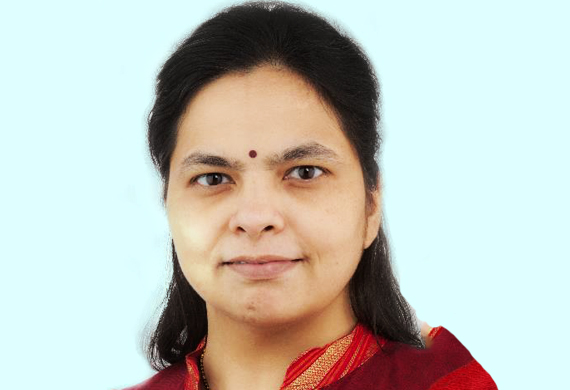
Emerging Trends in Healthcare Delivery
By: Dr. Shilpa Tatake, Group COO, Jupiter Hospital
Having completed his master’s degree in Healthcare Administration from Tata Institute of Social Sciences, Dr. Shilpa boasts of an extensive 20+ years career in the healthcare sector. Prior to joining Jupiter Hospital in 2008, she worked in leadership positions with many trust and corporate hospitals in Mumbai and Maharashtra. She has been recently nominated as ‘Top impacting hospital leaders of 2023’ by Voice of Healthcare.
The topic of personalized healthcare has been in discussion for a long time in the healthcare ecosystem. Since every human is unique, culture, genomes, biodiversity, and lifestyle differ from one patient to another even in the same geographical region. In a personalized healthcare approach, we are not treating the disease; but we are treating the patient, who is at the core of the healthcare delivery model. Personalized healthcare also means that we are making the entire treatment modality patient-centric. While this offers a lot of advantages to the patients, it also brings along with it a new set of challenges during the implementation phase.
A common challenge that most healthcare providers face while adopting patient-centric care is the lack of proper access to comprehensive and accurate patient records, without which it becomes impossible for healthcare practitioners to give accurate and targeted care to each patient. However, efforts are being made by the government today to have a centralized database consisting of the EHR of the entire population, which will be easily accessible by both patients and healthcare professionals. This will act as the true enabler for the entire healthcare ecosystem to offer patient-centric and personalized care.
Technology Enhancing the Efficiency of Healthcare Delivery
Integration of AI with healthcare has come a long way today, which has resulted in the healthcare ecosystem undergoing a thorough transformation lately. This is because modern-day technologies such as AI are offering a host of benefits to both healthcare professionals and patients. However, it is important to keep in mind that despite the variety of benefits that tech integration offers, it cannot replace the human touch, especially in healthcare delivery. Today, AI is playing a key role in increasing the efficiency and accuracy of diagnostic tests. Additionally, technologies such as nanotechnology, biotechnology, and robotics are helping to maintain high precision in terms of surgeries, medication delivery, and many more. Technology is also enabling patients to have better access to quality healthcare services; telemedicine is a noteworthy mention in this regard, especially due to its role in making healthcare services accessible even during the COVID-19 pandemic.
Optimizing Operational Efficiency, Cost & Quality
Healthcare operations demands working on the ground to understand the various complexities and realities involved in the day-to-day functions. When a patient visits a large corporate hospital, most of the time he/she is lost and does not have clarity of which department to visit or what tests they must undertake unless there is some medical staff to help them. Thus, in terms of operational efficiency, it is important to have basic empathy in place, map the processes considering patients' needs, and guide them properly in such a way that they derive maximum benefit from the money they are spending on the treatment. Additionally, hospitals must have effective monitoring mechanisms in place to continuously review every process.
Furthermore, healthcare providers must also have efficient methods to gather feedback from various stakeholders and rework on the process based on the collected feedback. This might sometimes also involve complete process re-engineering, infrastructure changes, training & upskilling of employees, periodic feedback collection from patients and relatives, employees, and many more. Also, just to give an example the patient discharge process involves many steps and takes up a lot of time, the hospital needs to optimize this entire process and cut down the time duration to a bare minimum. Lastly, it is paramount for every healthcare organization to have a strong communication channel between all the stakeholders of the business. Implementing all these practices goes a long way in enhancing operational efficiency across any healthcare setup.
Future Prospects
Today, the healthcare industry is evolving at an unprecedented rate, especially with the advent of modern-day technologies. The expectation of the customers too is changing rapidly post the pandemic, which has resulted in an increased demand for personalized care. This has put a lot of pressure on the stakeholders involved in the healthcare business. Also, increased awareness, rise in disposable income among the customers and increased healthcare insurance penetration have increased the demand for single occupancy and above classes. Furthermore, with telemedicine becoming mainstream, people now understand the benefits of remote healthcare and prefer healthcare to be delivered to their doorstep. As a result, the care spectrum is now moving from hospitalized central care to remote care. Most importantly, I expect the focus to shift from disease care to wellness & prevention in the coming days.
Most Viewed
- 1 Women's Health Startup HerMD Closing Doors Amid Industry Challenges
- 2 5 Famous Women in Indian Armed Forces
- 3 Saudi Women No longer Require Male Permission for Clothing Choices, says Prince MbS
- 4 Kolkata Medtech Startup Innovodigm Raises Rs 5.5 Crore Seed Funding Led by IAN Group
- 5 Yamunanagar's Kashish Kalra Honoured after Securing 111th Rank in UPSC Civil Services Exam
- 6 Madurai Appoints Its First Woman Corporation Head
- 7 IAS Vijayalakshmi Bidari Appointed as the new Nagpur Divisional Commissioner
- 8 American Entrepreneur Lucy Guo Overtakes T Swift to become Youngest Female Billionaire
- 9 ICC Women's World Cup 2025 Trophy Showcased at Indore's Holkar Stadium
- 10 Aparna Saxena's Beauty Venture AntiNorm Launches in India
- 11 Vidya Nataraj Co-Founded BlueStone Jewellery & Lifestyle files IPO
- 12 5 Women Freedom Fighters of India
- 13 Dr. G Krishnapriya appointed as CEO for Trichy
- 14 M3M & Sirona Partner to Introduce Menstrual Hygiene Vending Machines in 15 Locations
- 15 Punjab Govt launches SHE Cohort 3.0 Supporting Tech-led Women Startups
- 16 Indian origin Lawyer, Sweena Pannu appointed as the US New Superior Court Judge
- 17 The Aurora Tech Award recognizes 4 Indian Women-led Startups
- 18 Kerala's Republic Day parade featured an all-female tableau
- 19 Manisha Kabbur Becomes Karnataka's First Woman International Karate Coach
- 20 Director K. S. Ravikumar's Daughter Maalica Ravikumar Launches Life Coaching Company 'Evergrowth Academy' for Women
- 21 Leezu's Raises Pre-Seed Funding to Accelerate Growth in Sexual Wellness Industry
- 22 Sattu: Super-easy summer drink for PCOS gut healing
- 23 Swathi Nelabhatla creates Sitha App, India's First Women-Exclusive Gig Platform
- 24 7 Timeless Female Kathak Dancers & their Iconic Legacies
- 25 Meet 7 Iconic Women Architects of Modern India & their Most Impactful Work
- 26 This Woman-led Insuretech Startup is Helping Bridge the Education Financing Gap in India
- 27 Women Leaders Share Lessons Learnt from India Women's WC Win
- 28 5 Enterprising Women Founders Powering Singapore's Tech & Innovation Landscape
- 29 4 Women. 4 Stories. One Vision for Smarter, Stronger Healthcare
- 30 Global Gender Gap Narrows to 68.8%, But Full Equality 123 Years Away: WEF Report 2025
- 31 Changemakers: 7 Women Entrepreneurs Taking the Make in India Movement Forward
- 32 Meet Lucy Guo, The Youngest Self-Made Female Billionaire Disrupting Tech
- 33 How Women are Driving India's Festive Online Shopping Surge






